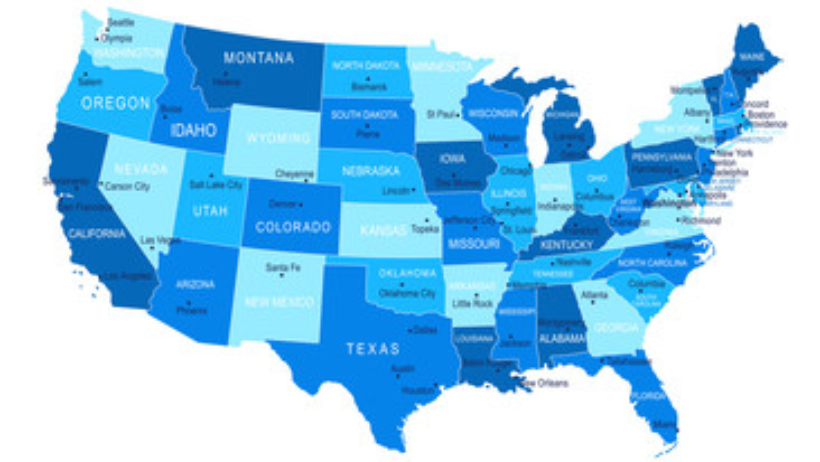Are you curious about the global forces that are currently shaping the US economy and politics? Look no further! In this article, we will analyze the impact of emerging markets, technological advancements, trade policies, climate change, and geopolitical tensions on the United States. By examining these factors through an analytical lens and presenting data-driven insights, we aim to provide you with an objective understanding of the forces driving change in the US. Let’s dive in and explore the intricate web of global influences on the nation.
Emerging Markets
Emerging markets play a crucial role in shaping the US economy and politics. These markets, characterized by their rapid economic growth and increasing influence in global trade, present significant investment opportunities for the United States. As these markets continue to expand, they contribute to the overall growth of the global economy, which in turn affects the US economy. According to data from the International Monetary Fund, emerging markets accounted for nearly 60% of global GDP growth in 2019, highlighting their importance in driving economic expansion.
In terms of investment opportunities, emerging markets offer the potential for high returns due to their strong economic growth. These markets are characterized by growing middle-class populations, increasing consumer demand, and expanding infrastructure. This creates favorable conditions for businesses looking to expand their operations and tap into new markets. Additionally, emerging markets often have lower labor costs and abundant natural resources, attracting foreign investors who seek to capitalize on these advantages.
However, investing in emerging markets also comes with risks. These markets can be volatile and susceptible to external shocks, such as changes in global trade policies or fluctuations in commodity prices. Political instability, corruption, and inadequate regulatory frameworks are additional challenges that investors may encounter. Therefore, it is crucial for investors to conduct thorough research and due diligence before venturing into these markets.
Technological Advancements
Harnessing technological advancements is essential for driving economic growth and shaping the US economy and politics. In recent years, the rapid development of artificial intelligence (AI) and automation has significantly impacted various sectors, from manufacturing to finance, and is poised to continue transforming the US economy. AI technologies, such as machine learning algorithms, are enabling businesses to automate tasks that were previously performed by humans, leading to increased efficiency and productivity. According to a report by McKinsey, automation could potentially increase global productivity by up to 1.4% annually, resulting in significant economic gains. In the US, automation is expected to affect around 50% of all work activities, with both low and high-skilled occupations being impacted. While automation can lead to job displacement, it also creates new opportunities for workers to upskill and engage in higher-value tasks. Additionally, AI technologies can improve decision-making processes and enhance the effectiveness of government policies. For instance, AI-powered analytics can help policymakers identify and address societal challenges more effectively, leading to better outcomes for citizens. As the US continues to embrace and adapt to technological advancements, it is crucial for policymakers to strike a balance between fostering innovation, ensuring job security, and addressing potential societal impacts.
Trade Policies
One key global force affecting the US economy and politics is the impact of trade policies. Trade deficits and protectionism play a significant role in shaping the economic landscape and political discourse in the United States.
Trade deficits occur when a country imports more goods and services than it exports. In recent years, the US has experienced persistent trade deficits, particularly with countries like China. This has led to concerns about the loss of domestic jobs and the erosion of American industries. As a result, trade policies have become a focal point of political debate, with calls for more protectionist measures to address the trade imbalances.
Protectionism refers to the use of trade barriers, such as tariffs and import quotas, to shield domestic industries from foreign competition. Proponents argue that protectionist policies can help protect jobs and promote economic growth. However, critics argue that such measures can lead to retaliatory actions from trading partners, resulting in higher prices for consumers and reduced export opportunities for American businesses.
The impact of trade policies on the US economy and politics cannot be ignored. The ongoing discussions and policy decisions surrounding trade deficits and protectionism have far-reaching consequences for industries, jobs, and global economic relations. It is crucial for policymakers to carefully consider the potential benefits and drawbacks of different trade policies to ensure a balanced approach that supports both domestic industries and international trade relationships.
Climate Change
As you consider the impact of trade policies on the US economy and politics, it is essential to address another significant global force – climate change. The effects of climate change are far-reaching and have profound implications for both the economy and politics. One of the key aspects of climate change is the issue of carbon emissions. Carbon emissions, primarily from the burning of fossil fuels, are a major contributor to climate change. The US, as one of the largest emitters of carbon dioxide, has a crucial role to play in reducing its emissions.
To combat climate change, the promotion of renewable energy sources is imperative. Renewable energy, such as solar and wind power, can help reduce carbon emissions and provide a sustainable alternative to fossil fuels. Investing in renewable energy not only helps mitigate climate change but also has the potential to create jobs and boost economic growth. According to a study by the International Renewable Energy Agency, the renewable energy sector employed over 11 million people globally in 2018.
Furthermore, transitioning to renewable energy sources can enhance energy security and reduce dependence on foreign oil. It also aligns with international efforts to combat climate change, such as the Paris Agreement. By embracing renewable energy, the US can position itself as a leader in clean energy technology and innovation.
Geopolitical Tensions
Geopolitical tensions impact the US economy and politics in numerous ways. The current state of geopolitical instability and its consequences on international relations have significant implications for the United States. One of the primary ways in which this is observed is through the impact on global trade. When tensions rise between countries, trade barriers such as tariffs and sanctions are often implemented, disrupting the flow of goods and services. This can lead to higher prices for consumers and reduced access to foreign markets for American businesses, ultimately affecting economic growth.
Furthermore, geopolitical tensions can also have a direct impact on the energy sector. Many geopolitical conflicts involve countries with significant energy resources, and disruptions in the supply of oil and gas can lead to price volatility. The United States, as a major consumer and producer of energy, is particularly vulnerable to these fluctuations. Instability in oil-rich regions can lead to increased energy costs, which can have a ripple effect throughout the entire economy.
In addition to the economic consequences, geopolitical tensions also shape US politics. They influence foreign policy decisions, with governments needing to navigate complex international relationships. These tensions can also impact public opinion and shape the agenda of political parties. Furthermore, they can contribute to a sense of insecurity and uncertainty among the population, which can have implications for domestic policies and the political landscape.




